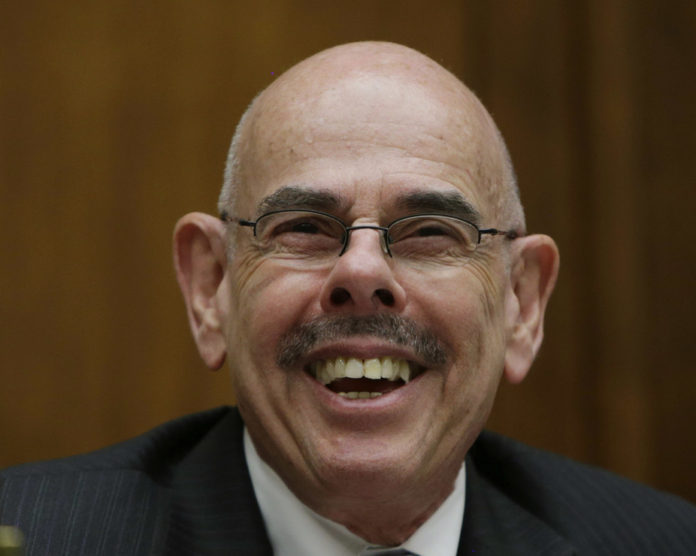
By Richard Arenberg, Brown University
An era has ended. The last of the “Watergate Babies” has left the Congress. The nickname was applied to the class of House Democratic freshmen elected in 1974 in the wake of the Watergate scandal. There were 75 elected. (17 Republican freshmen also entered the House that year).
Powerful House committee chairmen George Miller and Henry Waxman, both of California, the two remaining members to have served the full 40 year span in the House, retired at the end of the 113th Congress. Former Senator Tom Harkin (D-IA) was a member of the class as was US Ambassador to China, Max Baucus who resigned from the Senate to take that post last year.
What the babies had in common
The Watergate Babies were mostly young, liberal and opposed to the war in Vietnam. They were fiercely independent.
However, the defining characteristic of the Watergate Babies was a determination to reform government. Campaigning as the Watergate scandal was coming to a head and as Richard Nixon resigned the presidency in August 1974, they reflected the electorate’s demand for change in Washington.
Paul Tsongas, for example, running against an incumbent Congressman in Massachusetts, Paul Cronin, blanketed the district with pamphlets which featured nothing on the front page except “Tsongas vs Cronin on Nixon” in huge black block letters. Much of the campaign focused on ethics and reform. It centered on the demand that the congressman release his tax returns for the previous five years as the challenger had done. When Tsongas won, he became the first Democrat to hold that seat since 1895.
Tom Harkin also defeated an incumbent congressman to win an Iowa district, becoming only the second Democrat since 1893. He, too, raised ethics and reform issues, accusing his opponent of having violated regulations which govern congressional mailings under the “frank”, the Congressional privilege to send official mail without postage under their signature.
All across the country young Democrats, many with limited political experience, were benefiting from the Watergate backlash. Many promised to clean up the House and more broadly ethics in government. When, in November, 75 of them won, it was a sweeping mandate.
They took their elders to task
The Watergate class surged into office, almost immediately shaking the foundations of the way the House of Representatives operated. They set in motion changes which would help to define their era.
Building on a series of reforms passed two years earlier by Democrats led by the progressive Democratic Study Group, they summoned all committee chairmen to come before the freshman class and answer questions. Enraged by a series of hostile questions, Edward Hebert who chaired the powerful Armed Services Committee, famously told the assembled Watergate Babies, “Boys and girls, let me tell you what it’s like around here”.
Quickly, the freshmen challenged several autocratic House chairmen (including the arrogant Hebert). At the time, nearly all important House committees were led by Southerners who had benefited from the solid Democratic South of the segregationist era. Reelected again and again in the one-party dominated South, they rose through the seniority system to head the committees.
The Watergate class attacked the seniority system and stripped four of the stodgy, conservative, Southern chairmen of their gavels. Deposed were 73 year old Hebert, Agriculture Committee Chairman William Poage who was 75 and the 81 year old Chairman of the Banking Committee, Wright Patman. The scandal-ridden Wilbur Mills, Chairman of the Ways and Means Committee had already resigned the chairmanship he was nearly certain to lose with the incoming class on the horizon. California Watergate Baby George Miller described the atmosphere in revolutionary terms: “We came here to take the Bastille”
Some House-cleaning was necessary
This was a mighty warning to other chairmen to democratize their committees and give a voice to the younger reformers or face the same fate.
Some wanted to go even further. The Watergate Babies had become frustrated by the weak speaker, Carl Albert, particularly when the House failed to override President Ford’s veto of the strip mining reform bill. In June, Bob Carr of Michigan in a speech on the floor called for Albert to be dumped. Albert survived, but was on the slippery slope to retirement. By the end of that Congress, he was gone.
One of the ironies of the Watergate Babies’ legacy is that by weakening the committee chairmen to foster greater participation by the rank and file, they set in motion the strengthening of the speakership and party leadership. Speakers –like Jim Wright, Newt Gingrich, Nancy Pelosi and John Boehner – have seized control of the legislative process in the House in the years that followed, further weakening the committee structure.
Their influence is still felt
Thirty-five years later, Watergate Babies would play a crucial role in the shaping and enacting of the Affordable Care Act. In the House, George Miller and Henry Waxman, both of California, were now the chairmen of the Committee on Education and Labor and of the Oversight and Government Reform Committee respectively. Elected to the Senate were Watergate Babies Chris Dodd of Connecticut, Harkin of Iowa and Baucus of Montana. Baucus, was now the influential Finance Committee Chairman. Dodd chaired the Senate Banking Committee and he and Harkin were key figures in the leadership of the Health, Education, Labor and Pensions Committee. Because of Chairman Ted Kennedy’s illness, Dodd guided the committee through much of the health reform deliberation and Harkin became its chairman when Kennedy died.
Waxman also played a key role in a long list of other legislative accomplishments including the strengthening of the Clean Air and Safe Drinking Water Acts and the expansion of Medicaid and the Children’s Health Insurance Program. Tsongas was a principle author of the Alaska Lands Act which President Carter hailed as the greatest conservation act of the century. Dodd was responsible for the Dodd-Frank Wall Street and consumer protection reforms. Tim Wirth was an architect of the “cap and trade” provisions in the Clean Air Act and George Miller, along with Ted Kennedy, led a successful battle to accomplish a major increase in the minimum wage.
Others in that 1974 class had distinguished careers. Norman Mineta of California was Secretary of Transportation under George W. Bush (the only Democrat in the Bush cabinet) and Secretary of Commerce under Bill Clinton. Max Baucus is the current US Ambassador in China. Four of the Babies ran for president: Dodd briefly in 2008, Harkin in 1992 and Paul Simon from Illinois in 1988. The most successful was Tsongas who won several primaries, including a victory over Bill Clinton in the first-in-the-nation New Hampshire primary.
Finally, it should be noted that one of the original Watergate babies is back. Rick Nolan of Minnesota left the House in 1980, but was re-elected to a redistricted district in 2012 and was very narrowly sent back to Congress in 2014
What is not in doubt is that as a class, the Watergate babies left an indelible stamp on Washington.
![]()
This article was originally published on The Conversation.
Read the original article.




















